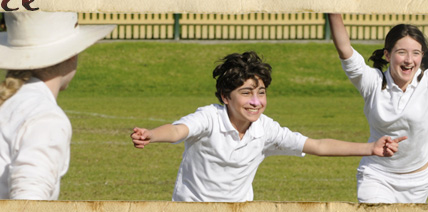Ramadan
[Episode 2 | 1998 : Mohammed]
Mohammed's family is moving into their new house, owned by Michaelis. It is nearing Ramadan and at mealtime the family is discussing whether Mohammed can participate this year.
History
Episode clips
More resources
- 1990 Decade timeline – 1990s
- Aligned resources
-
TLF digital curriculum resources
- R4631 'Threads of a cultural cloth' tapestry, 1992
- R4949 Celebrating citizenship, Sydney, 1997
- R7104 The Hillmen: A Soccer Fable, 1995: Soccer assimilation
- R7386 Compass - Islam on Parade, 2005: On being young and Muslim in Australia
- R10693 Cathy Freeman, 1993
- R11137 Members of the Perth Islamic community at prayer, 1990



![Ramadan [Episode 2 | 1998 : Mohammed] Ramadan [Episode 2 | 1998 : Mohammed]](/assets/interface/images/spec_graphic/clip/1998/1/thumb.jpg)
![Discrimination [Episode 2 | 1998 : Mohammed] Discrimination [Episode 2 | 1998 : Mohammed]](/assets/interface/images/spec_graphic/clip/1998/2/thumb.jpg)
![The ball of the century [Episode 2 | 1998 : Mohammed] The ball of the century [Episode 2 | 1998 : Mohammed]](/assets/interface/images/spec_graphic/clip/1998/3/thumb.jpg)

